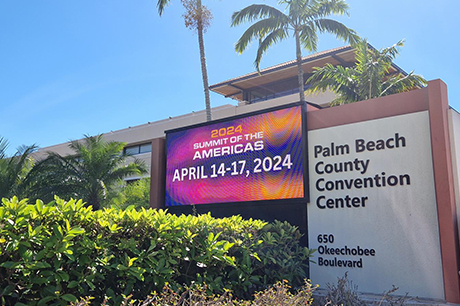Extra time for airports’ 3D scanning technology delays end to liquids limit
By Luke Barras-hill |
![Airport-security[1] Rules about taking liquids and large electrical items through airport security at large UK airports are getting a shake-up.](https://d24chjhol3kq77.cloudfront.net/trbusiness.com/wp-content/uploads/2022/12/Airport-security1.jpg)
The 100ml limit on liquids will stay in place for those airports that do not yet have in place the 3D security scanning technology.
Some of Britain’s biggest airports will continue implementing the 100ml LAGs (liquids, aerosols and gels) hand luggage rules this summer following a government intervention allowing extra time to install new security technology.
Last week, Whitehall revealed an extension on the 1 June deadline for airports to implement next-generation 3D scanners that would spell the demise of the requirement for passengers to carry liquids of no more than 100ml in carry-on bags.
The delay to the original 1 June deadline means certain airports now have up to one year to install the state-of-the art equipment first announced in 2018, which enables travellers to pass through security checkpoints carrying greater quantities (up to two litres) of liquid in their hand luggage to save time and improve efficiency.
Extensions will be granted on a “case-by-case basis”, says the UK’s Department for Transport (DfT), to allow extra time for those airports unable to upgrade their security facilities by 1 June due to factors “such as the global supply chain’s continued recovery from the pandemic”.
The government said it acknowledges that installing the new security equipment at busy airports has presented a “logistical challenge”, requiring major construction work to introduce large equipment and in some cases the necessity for new screening halls.
“Serious financial penalties”
“Serious financial penalties” are planned for those that fail to meet new deadlines, it added.
The DfT declined to reveal which airports have or have not been granted extensions when approached by TRBusiness, nor was it clear what “serious financial penalties” would entail for those airports that lag behind the new deadlines.
Powers to introduce such penalties under the Aviation Security Act are to be explored and confirmed in the coming months.
Transport Secretary Mark Harper, said: “These cutting-edge scanners will make air travel safer and easier for passengers by strengthening security even further. The UK is leading the world with its roll-out of this technology, but it’s important we give those airports yet to meet the deadline a second chance to get the job done. Until they do, passengers should continue to check before travelling.”

It is gathered that 50% of UK-departing passengers will pass through new security checkpoints by 1 June. Source: DfT.
TRBusiness is reliably informed that around 50% of passengers departing from UK airports are set to pass through the new security checkpoints by June.
Until then, passengers at those airports that are yet to implement the technology will continue to adhere to the 100ml liquids limit.
Gatwick Airport had earlier this year announced that significant progress had been made in installing scanners across its two terminals, but that remaining equipment would not be in place until the first quarter of 2025.
The airport declined to provide further information when approached by TRBusiness.
Heathrow earlier said it intended to rollout new scanning technology across its security lanes by the summer but it is unclear what the current status is and the airport did not respond to requests for comment.
A Manchester Airports Group spokesperson told TRBusiness: “We continue to make good progress at all three of our airports [Manchester, Stansted, East Midlands] on the introduction of new security screening equipment, as part of the UK-wide programme. This is a complex programme of work requiring the expansion of terminal facilities, while at the same time maintaining operations during construction.
“We are currently rolling out the new technology lane-by-lane at Manchester and London Stansted Airports, with several new lanes already in operation. Work is also underway on major construction projects at both Manchester and East Midlands airports to expand the size of the terminals to accommodate the new equipment. This will see the new scanners in place on a large number of our security lanes by June 2024, with the full completion of the programme expected the following year.”

Gatwick Airport has previously said it has made “significant progress” in installing new 3D scanners across its two terminals but completion would not take place until early 2025. Source: Gatwick Airport.
As reported, plans for all major UK airports to introduce the new security technology was mooted in 2019 ahead of a 1 December 2022 deadline.
This was delayed after the pandemic rocked the aviation sector, with a fresh deadline put in place for 1 June 2024.
TRBusiness pre-empted the government’s June 2024 deadline announcement via a story – first broken by The Times – that UK airports were trialling the advanced 3D scanning technology to replace current 2D screening as part of a review in a precursor to lifting the current security restrictions on passengers’ hand luggage.
Under current rules, passengers are restricted to carrying LAGs in their hand luggage of no more than 100ml, contained within one-litre, transparent, resealable bags, while large electrical items such as laptops are required to be removed from their cases and screened in separate trays.
Karen Dee, Chief Executive of the Airport Operators Association, the trade body for UK airports, said: “Airports are making excellent progress in delivering these multimillion-pound investment programmes, which will ensure the UK remains at the forefront of aviation security in the years ahead.
“As with any programme of this complexity, there are significant challenges, and we are happy the government has recognised these and agreed to extend timeframes for delivery where necessary.
“By adopting this approach, airports can ensure that they are ready to welcome passengers over the upcoming holiday periods and that their journeys are safe, secure and smooth as we make this transition.”
Tim Alderslade, CEO of Airlines UK, stated: “Delivering these changes throughout all UK airports will be key to improving airline passengers’ experience. The extension of the deadline for those airports who require it will ensure simplicity and ease for customers during this transition.”
Passengers are being advised to check what they are permitted to carry through security with each airport before they travel.
Read further background on this story below…
READ MORE: How will the UK’s phased end to security restrictions impact customers?
READ MORE: UK to streamline liquids and laptops security rules at airports by June 2024
READ MORE: Breakthrough for UK’s Enviro-Point as ‘sustainable STEBs’ gain ICAO approval
READ MORE: New screening equipment to benefit pax
Alcohol insights: Conversion up, spend down in Q4
Conversion of visitors in the alcohol category in duty free has risen to 54% in Q4 2023,...
TR Consumer Forum: Agenda & speakers revealed
Influential speakers will unpack the most effective strategies for understanding and engaging...
Saudia Arabia's KKIA unfurls T3 duty free expansion
King Khalid International Airport (KKIA) has unveiled the first stage of its much-vaunted duty...

In the Magazine
TRBusiness Magazine is free to access. Read the latest issue now.

 Trbusiness. The travel retail Trbusiness. The magazine for global retail and duty free professionals.
Trbusiness. The travel retail Trbusiness. The magazine for global retail and duty free professionals.





















